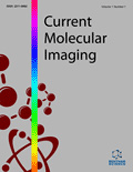Abstract
Cardiovascular diseases are generally synonymous with atherosclerosis and cardiac events from occluded vessels, although a multitude of other clinically significant diseases with occluded arteries exist. They often revolve around inflammatory processes, locally within or around the vessels as well as systemic, and they may result in significant morbidity and mortality. The systemic inflammatory component may manifest itself throughout the vasculature, but structural changes are often limited, which hamper the use of conventional and localized structural imaging. On the other hand, sensitive whole-body molecular imaging offers a unique diagnostic approach to these disorders. This is particularly true for positron emission tomography/computed tomography (PET/CT) with 18F-flourodeoxyglucose (FDG) which in recent years has become an established tool not only in cancer but also increasingly in infectious and inflammatory diseases. This review outlines current applications of FDG PET/CT in the most common vascular infectious and inflammatory diseases, i.e. vascular graft infections, vasculitis, and deep venous thrombosis (DVT).
Keywords: PET, PET/CT, FDG, vascular disease, vascular graft infection, vasculitis, venous thromboembolism.
Graphical Abstract
 18
18

